News
+ more news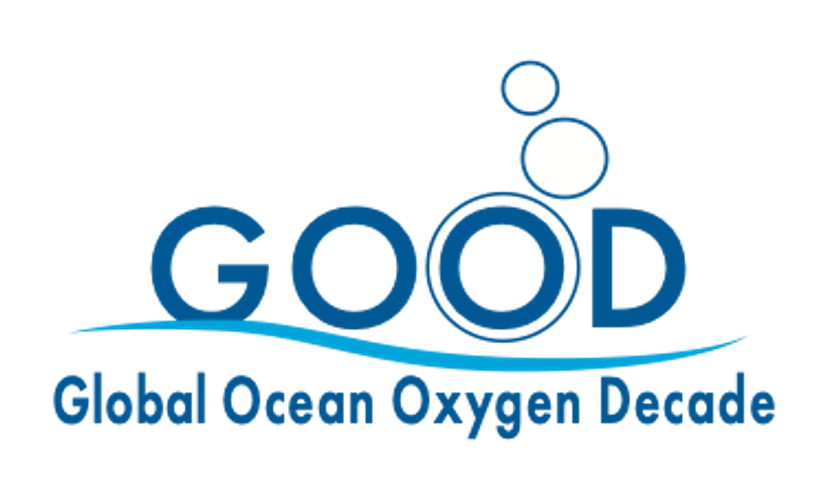
Invitation to join the Global Ocean Oxygen Database and ATlas (GO2DAT) Hackaton, 2-5 May 2022
Thursday, 14 April 2022
We are happy to invite you to join the Hackathon on generating and exploring ideas for developing a Global Ocean Oxygen Database and ATlas (GO2DAT) from 2 to 5 May 2022 organized by the Ocean Decade Programme 'Global Ocean Oxygen Decade' (GOOD). Develop as a team a prototype in 48 hours non-stop time and think about its use, using various digital data related to ocean oxygen. The Hackathon is a Satellite Event contributing to the International Digital Twins of the Ocean Summit (4-5 May 2022).
More information and the link for the registration of your team for the Hackathon are available here. Teams can apply for tackling only one challenge or several challenges with their envisioned prototypes. The registration process will end on 22 April 2022.
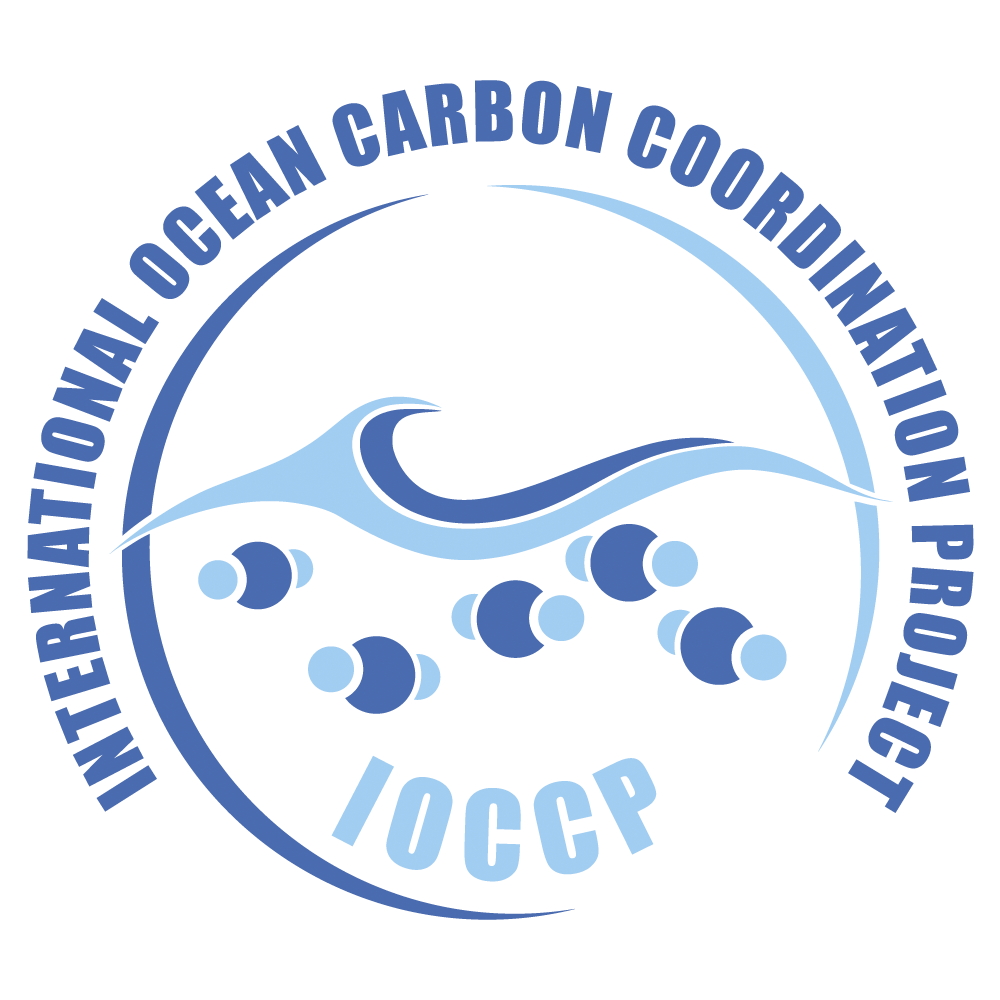
Report of the XVI Session of the IOCCP SSG & GOOS Biogeochemistry Panel
Wednesday, 06 April 2022
We would like to let you know that the report of the XVI Session of the IOCCP Scientific Steering Group & Global Ocean Observing System Biogeochemistry Panel of Experts (IOCCP-SSG-16) has been published. You can access the report from our site HERE.
The report summarizes the current status and future plans related to IOCCP's coordination and communication activities including our contribution to various UN Ocean Decade programmes and projects. We hope that you will find the report informative and many of you will become involved in the activities that the SSG planned for the months to come. Please don't hesitate to contact us with any questions and comments.
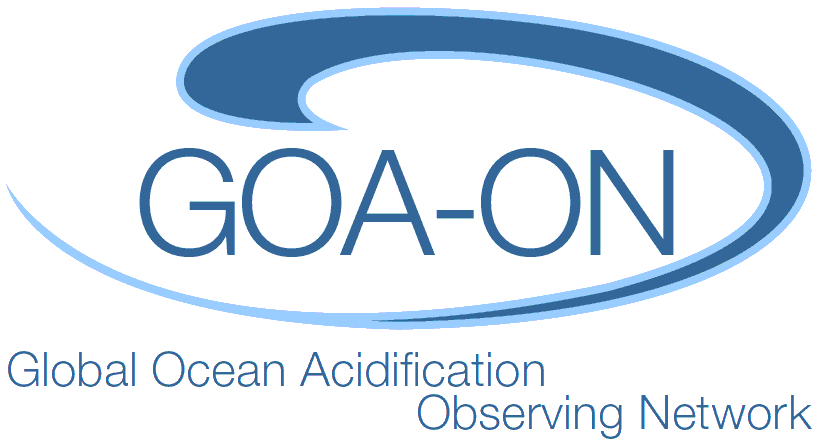
GOA-ON Webinar on Ocean Acidification in the latest IPCC WG2 report, April 29, 14-15 UTC
Friday, 01 April 2022
We would like to let you know that the Global Ocean Acidification Observing Network (GOA-ON) Webinar Series resume on April 29th at 14:00-15:00 UTC. Join Dr. Sarah Cooley, Director of Climate Science at the Ocean Conservancy, Dr. Helen Gurney-Smith, Research Scientist at DFO Canada, and Dr. Libby Jewett, Director of NOAA's Ocean Acidification Program for a presentation on ocean acidification findings in the newly released IPCC Working Group 2 report.
The report assessed the current state of knowledge about ocean acidification and its impacts on ocean systems both globally and regionally. New model projections detail the development of ocean acidification through the water column, and how its future development depends on global emissions choices. The report also assesses how ocean acidification is acting individually and in combination with other stressors, driving a variety of outcomes for ocean ecosystems and the people that depend on them. Climate change will affect how we live, work and play in coastal regions including impacts on biodiversity, cultural connections, food and livelihoods. Each of the presenters was a lead author on a different WG2 chapter and will provide insights accordingly.
To register for the webinar follow the link HERE.

OASIS webinar on Air-Sea CO2 Fluxes, 30 March 2022, 15:00-16:00 UTC
Wednesday, 23 March 2022
We would like to inform you that Observing Air-Sea Interactions Strategy (OASIS) is hosting a science webinar "Best Practices panel discussion on Essential Ocean Variables (EOVs) needed for air-sea CO2 fluxes" on Wednesday March 30, 2022, at 15:00-16:00 UTC. The Panel includes: Ralph Keeling (Scripps, USA); Dariia Atamanchuk (Dalhousie, Canada); Warren Joubert (SAWS, South Africa); Adrienne Sutton (NOAA PMEL, USA). To join the webinar, follow this link: https://meet.goto.com/IOOC/oasis-webinars.
OASIS webinars, held approximately quarterly, highlight new science studies and activities emerging in the air-sea flux space and encompass a broad set of flux disciplines (physics, carbon, biogeochemistry). To watch past webinars, see the OASIS website or Youtube channel!
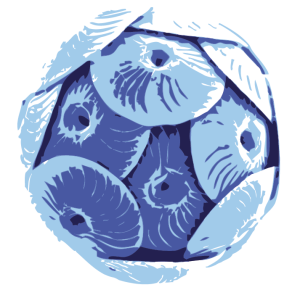
Update on the 5th International Symposium on the Ocean in a High-CO2 World
Monday, 21 March 2022
We would like to let you know that the 5th International Symposium on the Ocean in a High CO2 World has been officially rescheduled for 13-16 September 2022 in Lima, Peru. This will officially be held as a hybrid event to increase global participation. The new format, registration costs, and registration details are reflected on the High-CO2 website. Previously submitted abstracts are still valid. The deadline for any new submissions or alterations, and the deadline to submit applications for travel support, is currently 24 April 2022. To submit your abstract electronically, or to withdraw your abstract or update your contact information, you should email This email address is being protected from spambots. You need JavaScript enabled to view it.. For more information visit the symposium’s abstract submission page.
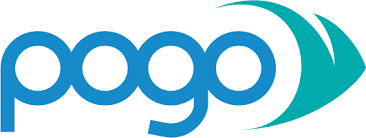
Registration open for two POGO-sponsored training opportunities
Friday, 18 March 2022
We would like to let you know that registrations are still open for two new POGO-sponsored training opportunities.
"Best practices for biogeochemical ocean observation: instrumentation, operation, quality control" will be a hybrid event with in-person sessions hosted at the Scottish Association for Marine Science (SAMS), Oban, Scotland. The training event will take place on 5-17 June 2022, there will be designed to increase utilization of biogeochemical data sets. The organisers will share experiences with moored and float biogeochemical sensors made by different projects. Some funding is available to support attendance by Early Career Scientists - for travel, registration fees and observations. Click here for more details and to register. Deadline for registrations: 31 March 2022.
"Regional training workshop on observing the coastal and marginal seas in the western Indian Ocean including the Arabian/Persian Gulf and the Sea of Oman" will take place on 7-9 June 2022 in hybrid format with three components taking place simultaneously – physical workshop venues in Maputo, Mozambique, virtual attendance and presentation in Kuwait, and global virtual attendance. The workshop will encourage the countries bordering the western Indian Ocean (including marginal seas) to be engaged in coastal observing programs and research as effective partners, and will also identify the training needs and capacity building in the participating countries and provide the opportunity for starting countries to learn from others who have already established programs. Limited grants are available to support the on-site participation. Click here for more details and to register. Deadline for registrations: 25 March 2022.

Gordon Research Conference: Biogeochemical Processes Across Space and Time, 1-6 May 2022, Castelldefels, Spain
Friday, 04 March 2022
We would like to inform you that the 2022 Gordon Research Conference (GRC) on Ocean Biogeochemistry will take place on May 1-6, 2022, in Castelldefels, near Barcelona, Spain. The Conference will focus on biogeochemical processes that occur across space and time in the ocean. Oral and poster presentations and discussions will address current topics ranging from deoxygenation, elemental cycles mediated by keystone organisms and viruses, carbon pumps, processes in high latitude oceans and shelf seas, to processes in past and future oceans. A detailed program along with information on travel and venue and applications can found online at https://www.grc.org/ocean-biogeochemistry-conference/2022/. Applications for this meeting must be submitted by April 3, 2022. Please apply early, as some meetings become oversubscribed (full) before this deadline. Check the Conference website for updates.
The 2022 GRC will be preceded by a Gordon Research Seminar (GRS) on Ocean Biogeochemistry (April 30 - May 1), open to graduate students and postdocs interested in marine biogeochemistry and related fields. The GRS will provide a forum for early career researchers to present and discuss results from their research in a peer-to-peer setting in advance of the GRC. Those interested in attending both meetings must submit an application for the GRS in addition to an application for the GRC. Refer to the associated GRS program page for more information.
The 2022 GRC on Ocean Biogeochemistry is chaired by Chuanlun Zhang (Southern University of Science and Technology, China) and Susanne Neuer (Arizona State University, USA), with Adina Paytan (University of California, Santa Cruz, USA) and Fei Chai (Second Institute of Oceanography, China / University of Maine, USA; IOCCP SSG member) serving as vice-chairs.

SCOR Promotional Videos & Photo Gallery
Monday, 28 February 2022
We would like to let you know that the Scientific Committee on Oceanic Research (SCOR) booth at the Ocean Sciences Meeting 2022 (OSM 2022) exhibits a SCOR flyer along with SCOR promotional videos, some posters and material from some of SCOR's projects (GEOTRACES, SOLAS, IMBeR, GlobalHAB, IQOE, IOCCP), Working Groups, and a prospectus on SCOR's capacity development activities. If you are attending OSM 2022 (Feb 24 - Mar 4), you are invited to have a look at the booth and to participate in the many SCOR related activities. The SCOR promotional material has been uploaded to the SCOR YouTube channel and website accessible through the links below:
SCOR flyer: https://scor-int.org/wp-content/uploads/2022/02/SCOR-flyer2.pdf
SCOR video full length: https://www.youtube.com/watch?v=pRVM0x_d0tA
SCOR video abridged: https://www.youtube.com/watch?v=HxCzYjP6AuQ
SCOR Photo Gallery: https://scor-int.org/wp-content/uploads/2022/02/SCOR-Photo-Gallery.pdf

2nd Climate Observation Conference pushed forward to 17 – 19 October 2022, Darmstadt, Germany
Thursday, 17 February 2022
The Global Climate Observing System (GCOS) supported by EUMETSAT will be holding a conference to assess how the current global climate observing system can be improved to better support current and near-term user needs for climate information. This conference follows on from the first climate observation conference, Global Climate Observation: The Road to The Future held on 2–4 March 2016 in Amsterdam. The conference will take into account the GCOS Status Report 2021 as well as the GCOS Implementation Plan 2022 (in preparation), which will make recommendations to meteorological networks, ocean and land major observing systems and satellite agencies and will be presented to the UNFCCC in 2022. A scientific committee is being setup under the leadership of Prof. Sabrina Speich, and an invitation for abstracts will be issued in March 2022.
Please mark your calendars now for this important conference from 17 to 19 October 2022. We hope that in spite of COVID-19 pandemic the meeting will be held in person, but hybrid options will be considered too. The registration page for the conference will open in March 2022 and more detail on the programme will be available at that time. All information will be made available at our meeting website: https://www.eventsforce.net/gcos-coc In the meantime, if you have any questions related to the conference, do not hesitate to contact us via email: This email address is being protected from spambots. You need JavaScript enabled to view it..
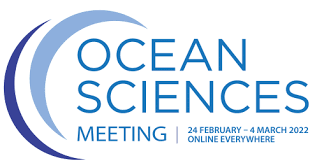
FAIR data solutions to support a global observing system of marine ecological time series - OSM'22 Town Hall Meeting
Tuesday, 15 February 2022
If you are attending the 2022 Ocean Sciences Meeting, you are invited to join the Town Hall Meeting "FAIR data solutions to support a global observing system of marine ecological time series" on 24 February 2022 at 15:00 EST (Room 1) to learn more about a new NSF EarthCube-funded Research Coordination Network for Marine Ecological Time Series (METS-RCN). METS-RCN is tasked with bringing together members of the oceanographic, data science, and informatics communities to build consensus on key components of a FAIR (Findable, Accessible, Interoperable, Reusable) (Wilkinson, 2016) data model for METS, including common vocabularies, metadata reporting standards, and data citation practices; engage broader METS data users (e.g., modelers, educators, decision makers) to facilitate broader applications of METS data; and build community capacity for METS data analysis, statistical methods, and data-model integration. This town hall meeting will also highlight a concurrent EU H2020 EuroSea-funded project led by members of the RCN leadership team focused on developing a pilot biogeochemical time series data product to help visualize spatial patterns and trends across ocean basins.
The IOCCP promotes the development of a global network of ocean carbon observations for research through technical coordination and communication services, international agreements on standards and methods, and advocacy and links to the global observing systems. The IOCCP is co-sponsored by the Scientific Committee on Oceanic Research and the Intergovernmental Oceanographic Commission of UNESCO. Read more…
Calendar
|
|
IOCCP meetings, IOCCP-related meetings as well as events related to a wider scope in marine biogeochemistry. |



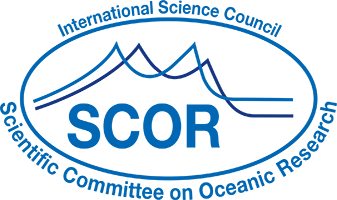

 Please wait...
Please wait...